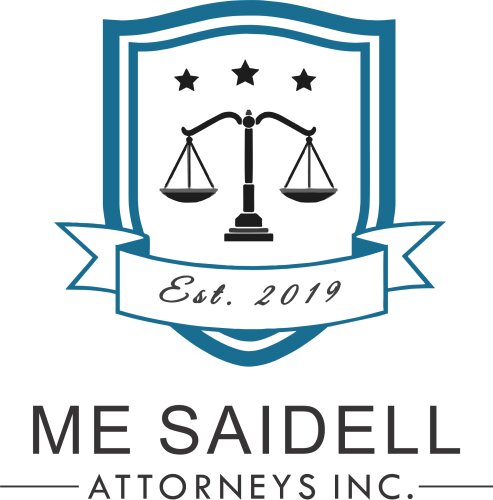Best Sustainable Finance Lawyers in Johannesburg
Share your needs with us, get contacted by law firms.
Free. Takes 2 min.
List of the best lawyers in Johannesburg, South Africa
About Sustainable Finance Law in Johannesburg, South Africa
Sustainable finance refers to financial practices and investments that consider environmental, social, and governance (ESG) factors alongside economic returns. In Johannesburg, South Africa's economic hub, sustainable finance has become a driving force for projects and businesses committed to responsible growth and positive impact. Legal frameworks around sustainable finance aim to ensure transparency, protect stakeholders, and promote sustainability-driven investments. They help guide businesses, investors, and financial institutions to make decisions in line with global sustainability goals and local development priorities.
Why You May Need a Lawyer
Navigating sustainable finance involves a complex web of laws, regulations, and standards. You may need a lawyer for several reasons, such as:
- Drafting, negotiating, or reviewing green loan agreements and sustainable investment documents
- Ensuring compliance with ESG disclosure requirements set by regulators in South Africa
- Advising on incorporating ESG criteria into business practices and investments
- Managing legal risks related to sustainability claims, carbon credits, and climate finance
- Assisting with licensing and regulatory submissions for green bonds or funds
- Handling disputes or investigations related to “greenwashing” (making unsubstantiated sustainability claims)
- Guiding mergers, acquisitions, or partnerships with significant ESG-related aspects
Local Laws Overview
Johannesburg, as part of South Africa, follows national legislation governing sustainable finance. Key aspects of local laws include:
- The Financial Sector Conduct Authority (FSCA) and Reserve Bank have issued guidance and regulatory frameworks related to ESG disclosures and sustainable investment practices
- The Johannesburg Stock Exchange (JSE) requires listed companies to disclose sustainability information and follow integrated reporting standards, such as the King IV Report on Corporate Governance
- The National Environmental Management Act and related regulations govern environmental impact, which is relevant for project finance and investments
- Tax incentives exist for renewable energy projects and sustainable investments under certain circumstances
- The South African government encourages the issuance of green bonds and other sustainable finance instruments, often requiring strict compliance and transparent reporting
- Local content requirements and community impact assessments are often prescribed for projects with significant environmental or social dimensions
Frequently Asked Questions
What is sustainable finance and why does it matter in Johannesburg?
Sustainable finance refers to financial services and products that incorporate environmental, social, and governance (ESG) criteria. In Johannesburg, it supports responsible business growth, attracts investment, and helps address challenges like climate change and social inequality.
What types of projects qualify as sustainable investments?
Projects that promote environmental protection, social development, and strong governance may qualify. Examples include renewable energy facilities, green infrastructure, affordable housing, and social impact funds.
Are there regulations requiring firms to disclose ESG information?
Yes. Companies listed on the JSE must disclose information about their ESG practices, risks, and performance as part of integrated reporting standards.
What is greenwashing and why is it a legal risk?
Greenwashing is making unsubstantiated or misleading claims about the environmental benefits of a product, service, or business operation. Inaccurate ESG disclosures can result in penalties or legal disputes.
How can lawyers help with green bonds or sustainable loans?
Lawyers help structure transactions, ensure regulatory compliance, draft documentation, and advise on reporting requirements so that both lenders and borrowers meet sustainable finance standards.
Who regulates sustainable finance activities in Johannesburg?
The Financial Sector Conduct Authority (FSCA), Reserve Bank of South Africa, and, for listed entities, the Johannesburg Stock Exchange set and enforce relevant regulations and standards.
What incentives exist for sustainable investments in South Africa?
There are tax incentives and preferential financing options for certain approved sustainable projects, particularly in renewable energy and green infrastructure.
Can sustainable finance disputes be resolved through South African courts?
Yes. Courts and, where agreed, arbitration panels can resolve disputes related to sustainable finance contracts, ESG misrepresentation, and regulatory compliance.
Is participation in sustainable finance voluntary?
Many ESG and sustainability initiatives are voluntary, but certain disclosures, impact assessments, and reporting requirements are mandatory for regulated institutions and listed entities.
What is the King IV Report and why is it important?
The King IV Report is a key corporate governance framework in South Africa that emphasizes sustainable business practices, stakeholder inclusivity, and integrated reporting. It is crucial for all organizations seeking to operate responsibly and attract investment.
Additional Resources
There are several resources and organizations that provide guidance and regulatory support for sustainable finance in Johannesburg and South Africa at large:
- Financial Sector Conduct Authority (FSCA)
- South African Reserve Bank
- Johannesburg Stock Exchange (JSE) Sustainability Segment
- Department of Environment, Forestry and Fisheries (DEFF)
- South African National Treasury: Sustainable Finance Guidelines
- South African Institute of Chartered Accountants (SAICA)
- The King Committee on Corporate Governance
- Climate Bonds Initiative: South Africa Green Bonds
- Local law societies and environmental law associations
Next Steps
If you are considering sustainable finance options, facing legal challenges, or need advice relating to ESG compliance in Johannesburg, taking the right steps is important:
- Gather all relevant documents such as contracts, investment proposals, project descriptions, and communication records
- Identify your specific legal or regulatory questions and the nature of your sustainable finance activity
- Contact a lawyer or law firm with proven expertise in sustainable finance, ESG law, or corporate governance in South Africa
- Be prepared to discuss your business’s goals, sustainability objectives, and any compliance requirements
- Consider seeking guidance from relevant regulatory authorities or industry bodies for additional support
Legal advice will help you navigate complex laws, protect your investments, build trust with stakeholders, and achieve your sustainability ambitions in Johannesburg, South Africa.
Lawzana helps you find the best lawyers and law firms in Johannesburg through a curated and pre-screened list of qualified legal professionals. Our platform offers rankings and detailed profiles of attorneys and law firms, allowing you to compare based on practice areas, including Sustainable Finance, experience, and client feedback.
Each profile includes a description of the firm's areas of practice, client reviews, team members and partners, year of establishment, spoken languages, office locations, contact information, social media presence, and any published articles or resources. Most firms on our platform speak English and are experienced in both local and international legal matters.
Get a quote from top-rated law firms in Johannesburg, South Africa — quickly, securely, and without unnecessary hassle.
Disclaimer:
The information provided on this page is for general informational purposes only and does not constitute legal advice. While we strive to ensure the accuracy and relevance of the content, legal information may change over time, and interpretations of the law can vary. You should always consult with a qualified legal professional for advice specific to your situation.
We disclaim all liability for actions taken or not taken based on the content of this page. If you believe any information is incorrect or outdated, please contact us, and we will review and update it where appropriate.
















